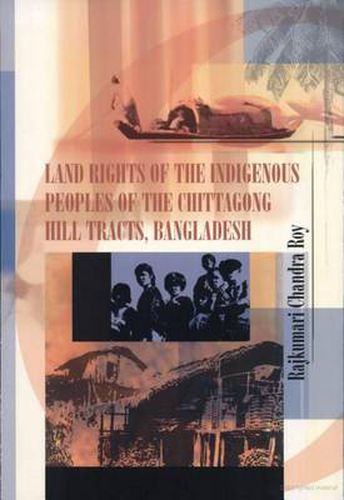Readings Newsletter
Become a Readings Member to make your shopping experience even easier.
Sign in or sign up for free!
You’re not far away from qualifying for FREE standard shipping within Australia
You’ve qualified for FREE standard shipping within Australia
The cart is loading…






The book describes the struggle of the indigenous peoples of the Chittagong Hill Tracts region in South-eastern Bangladesh to regain control over their ancestral land and resource rights. From sovereign nations to the limited autonomy of today, the book details the legal basis of the land rights of the indigenous peoples and the different tools employed by successive administrations to exploit their resources and divest them of their ancestral lands and territories. The book argues that development programmes need to be implemented in a culturally appropriate manner to be truly sustainable, and with the consent and participation of the peoples concerned. Otherwise, they only serve to push an already vulnerable people into greater impoverishment and hardship. The devastation wrought by large-scale dams and forestry policies cloaked as development programmes is succinctly described in this report, as is population transfer (transmigration) and militarization. The interaction of all these factors in the process of assimilation and integration is the background for this book, analyzed within the perspective of indigenous and national law, and complemented by international legal approaches. The book concludes with an update on the developments since the signing of the Peace Accord between the Government of Bangladesh and the Jana Sanghati Samiti (JSS) on 2 December 1997.
$9.00 standard shipping within Australia
FREE standard shipping within Australia for orders over $100.00
Express & International shipping calculated at checkout
Stock availability can be subject to change without notice. We recommend calling the shop or contacting our online team to check availability of low stock items. Please see our Shopping Online page for more details.
The book describes the struggle of the indigenous peoples of the Chittagong Hill Tracts region in South-eastern Bangladesh to regain control over their ancestral land and resource rights. From sovereign nations to the limited autonomy of today, the book details the legal basis of the land rights of the indigenous peoples and the different tools employed by successive administrations to exploit their resources and divest them of their ancestral lands and territories. The book argues that development programmes need to be implemented in a culturally appropriate manner to be truly sustainable, and with the consent and participation of the peoples concerned. Otherwise, they only serve to push an already vulnerable people into greater impoverishment and hardship. The devastation wrought by large-scale dams and forestry policies cloaked as development programmes is succinctly described in this report, as is population transfer (transmigration) and militarization. The interaction of all these factors in the process of assimilation and integration is the background for this book, analyzed within the perspective of indigenous and national law, and complemented by international legal approaches. The book concludes with an update on the developments since the signing of the Peace Accord between the Government of Bangladesh and the Jana Sanghati Samiti (JSS) on 2 December 1997.